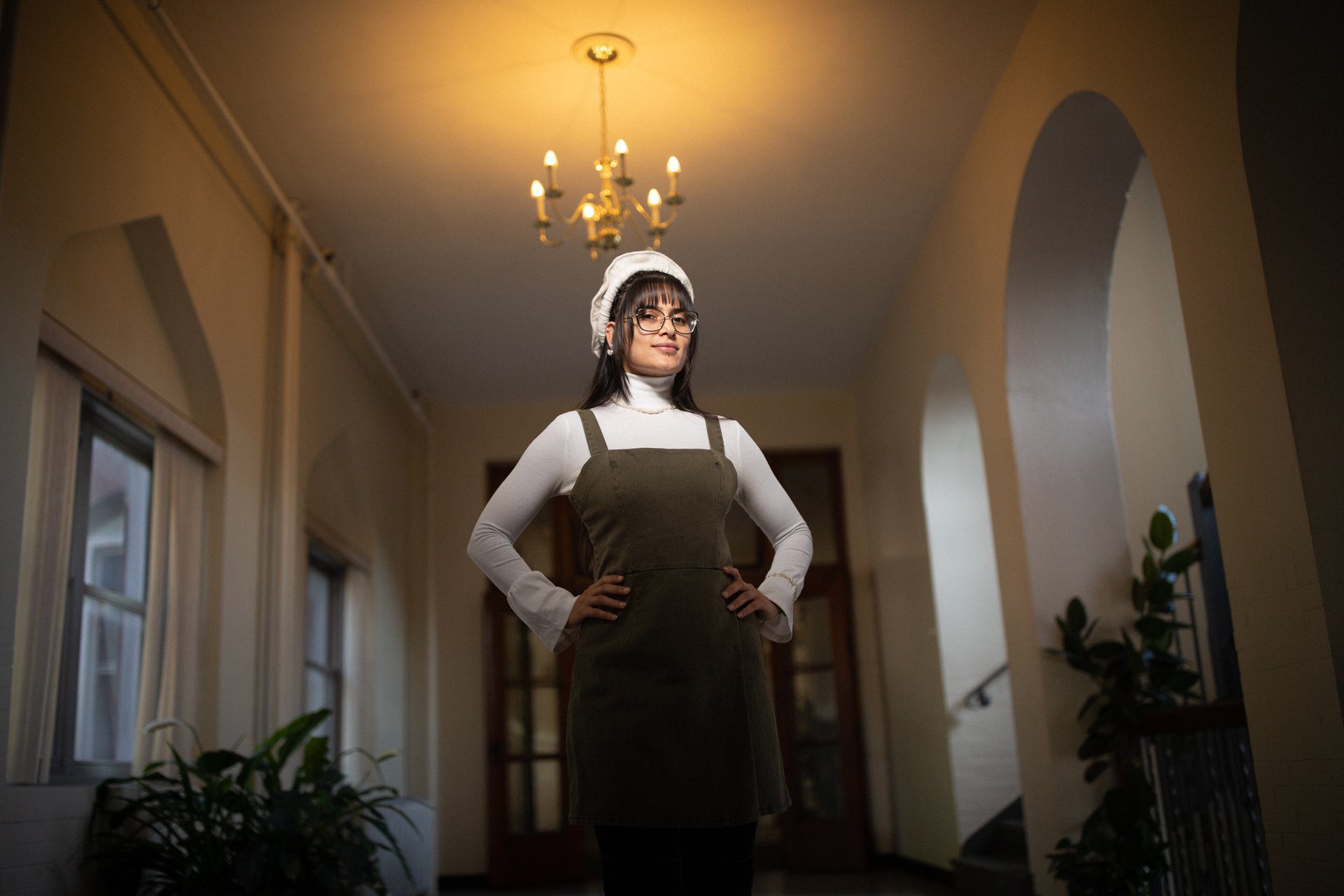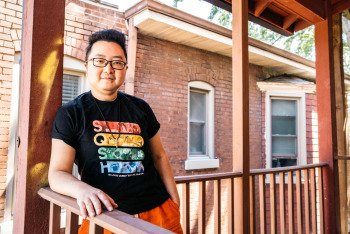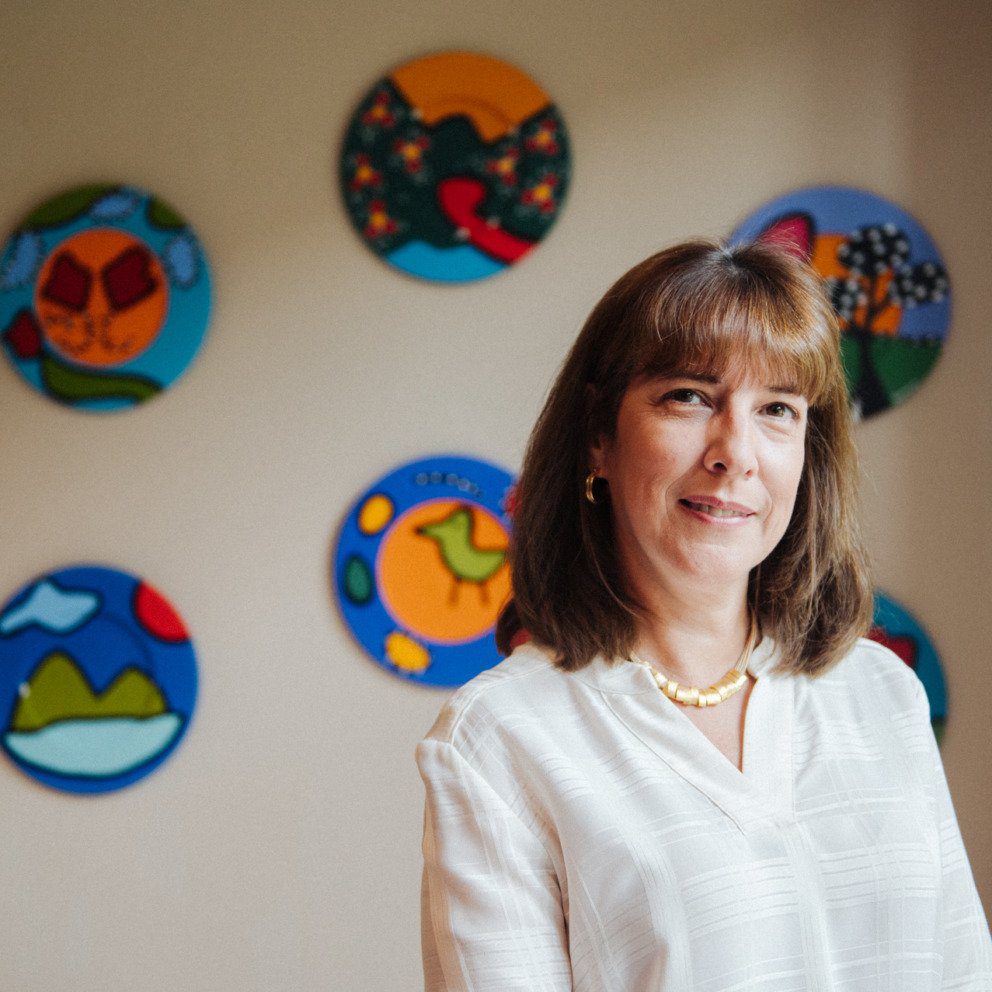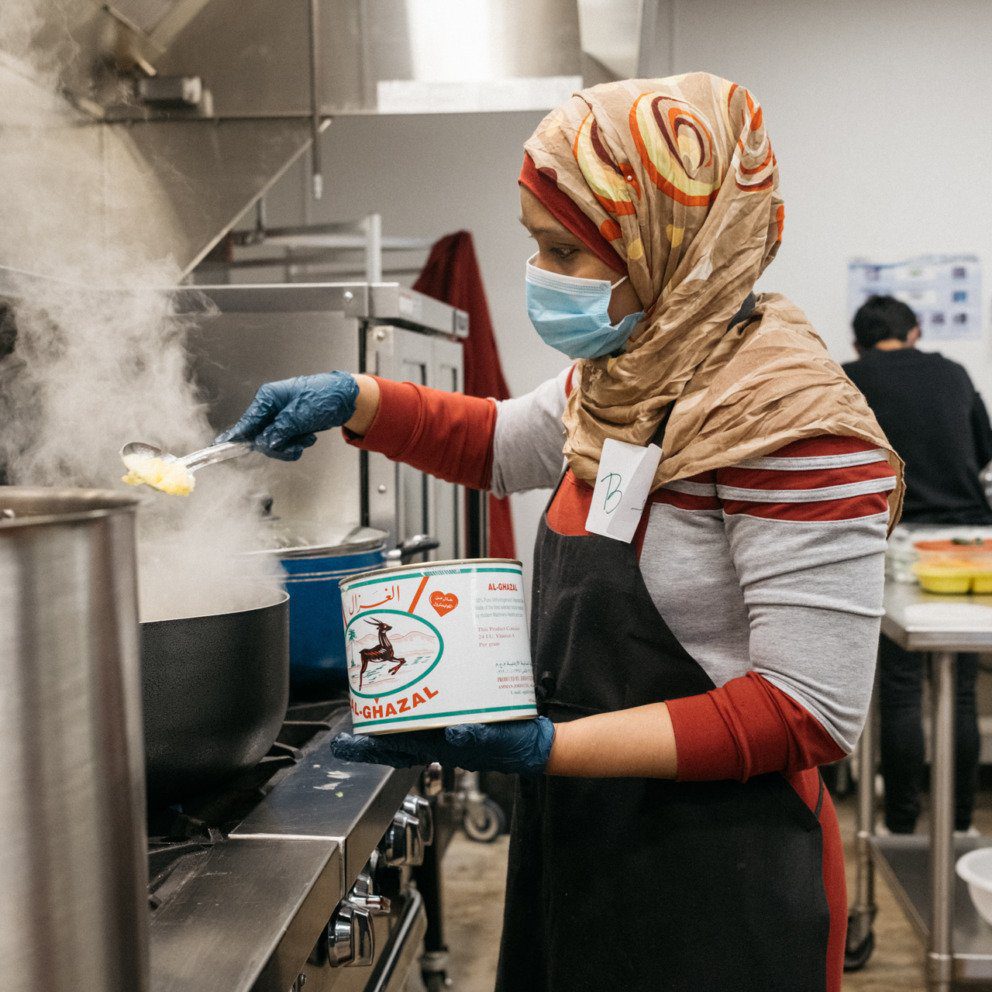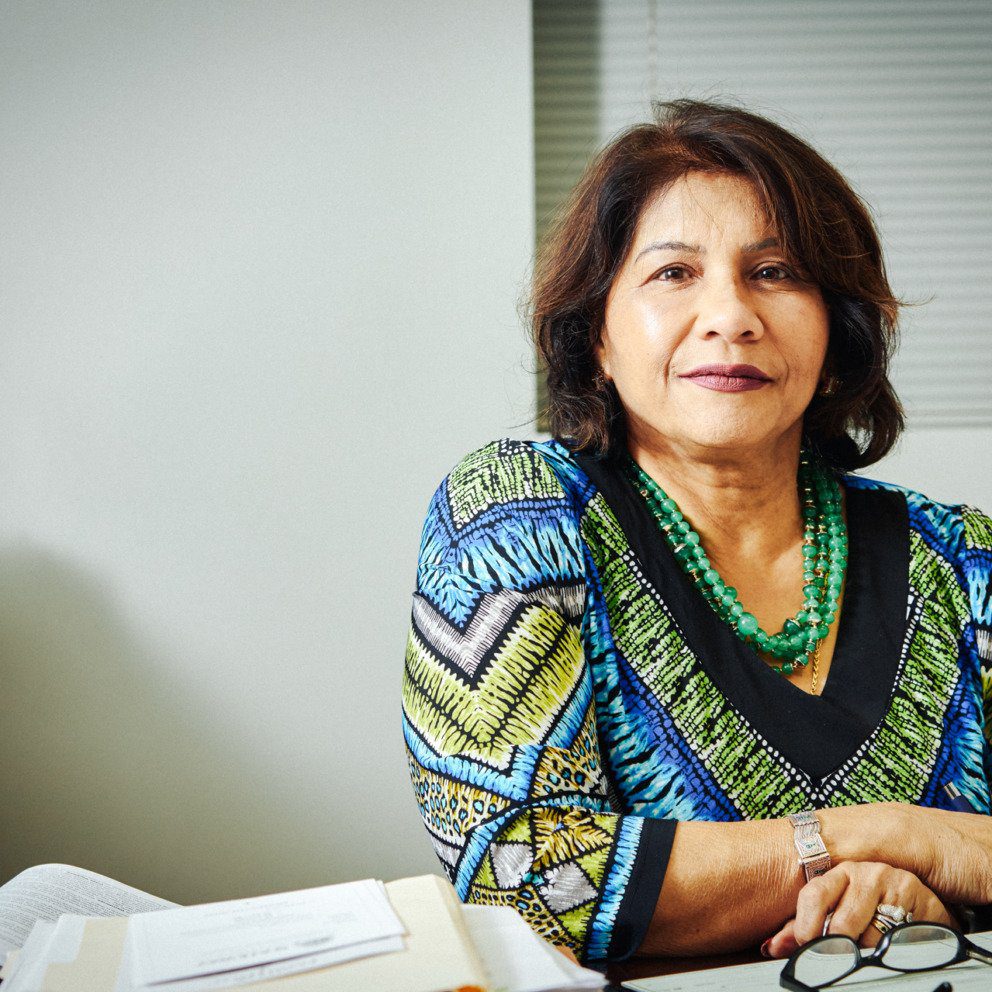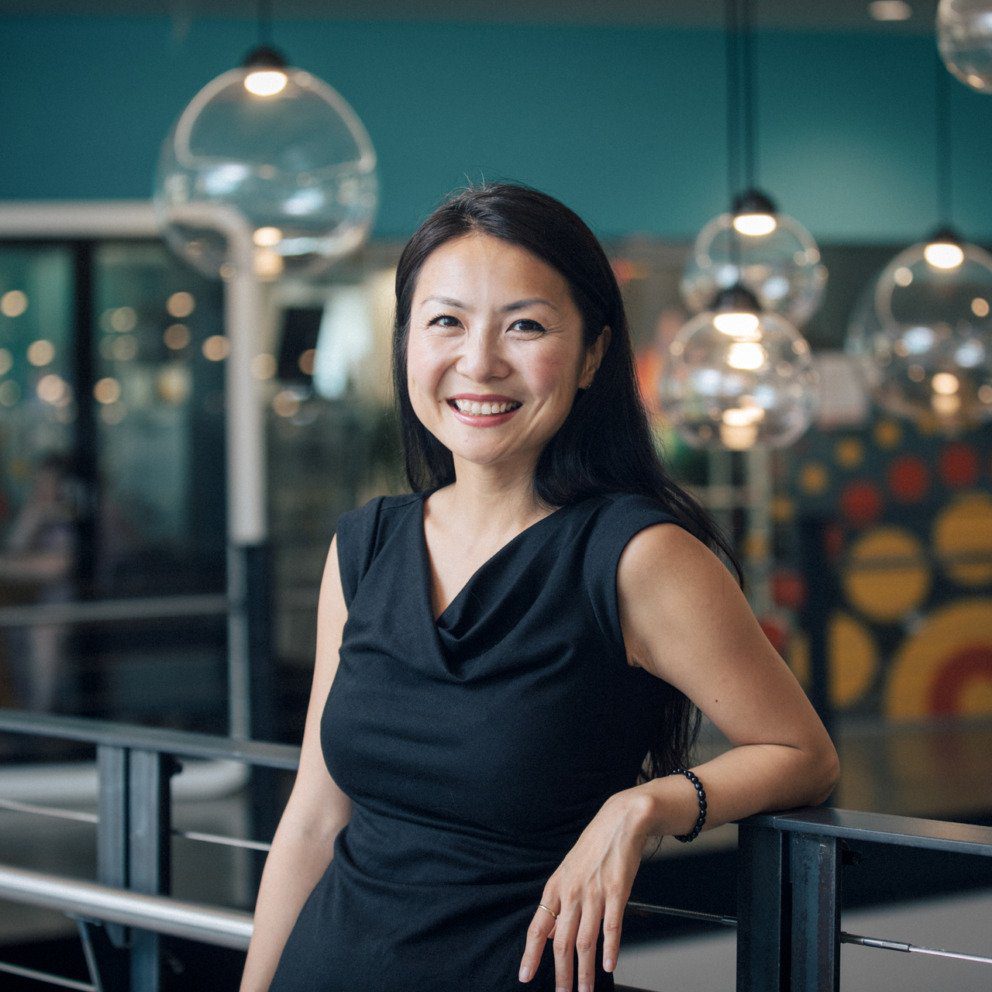Open Arms
Moji Sidiqi leads the International Institute of St. Louis’ Afghan Support Program in helping refugees adjust to their new home.
Moji Sidiqi will never forget a particular incident that happened during this past summer’s Afghan Eid al-Fitr festival at the International Institute of St. Louis. As is typical of her outgoing and fun-loving personality, Sidiqi was outside with a bubble machine laughing, smiling and encouraging the girls she’d encountered to dance and be happy after she’d just given a speech about empowerment of the self. She didn’t think too much of it at first when a little girl came up to her, but as soon as the young lady began to speak, it crystallized for Sidiqi why the work she does is so important.
“This lovely little soul stopped me and told me that she’d never heard anyone talk like me,” Sidiqi says. “She said that she liked the way I talked and the things I had to say. I feel like I have a duty and a responsibility to this land, because it helped me become a free and expressive woman who can yell when I want to and laugh out loud in crowds. I love this land, and I love this country, and I want to be a part of the work that makes this country the best it can be.”
Since February of this year, Sidiqi has been part of that work as the Afghan community liaison for the International Institute of St. Louis’ Afghan Support Program, which was launched earlier this year. It’s a role she came to with both significant reservations and a sense of duty, seeing it as more of a calling than a mere job. Through her efforts, Sidiqi has helped the Institute establish a newspaper and a Chamber of Commerce for the St. Louis Afghan community, facilitate entrepreneurship grants and scholarship programs, set up a youth soccer program called Soccer Saturdays and build an Afghan community center that will open in December.
Despite her recent successes in helping the Institute create a welcoming environment for the St. Louis Afghan community – as well as her years of activism and former leadership role with the Missouri chapter of the Council on American-Islam Relations – Sidiqi sees herself as an unlikely vessel. Born in Afghanistan and raised in Moscow, Sidiqi came to St. Louis 23 years ago as a self-described happy-go-lucky young woman interested in fashion and entertainment. She admits she did not give much thought to the issues of the day until she had what she calls a spiritual awakening after attending a protest in support of the Palestinians. The event moved her to the point that she went home and began doing research on the Israeli-Palestinian conflict, which then broadened into activism that included support for a variety of human rights issues, including racial justice. It made her question what she was supposed to do with her life.
“I read the Koran in English and for the first time in my life understood faith from an adult perspective, and I started to wake up and see the world in a different way,” Sidiqi says. “I decided to cover my head and see my body as something to be respected, but people started treating me differently and looking at me through a different lens. I kept hearing questions about why I was wearing it, and I talked to my Black friends who told me, ‘Welcome to America, Moji.’ It gave me this reality check that racism really does exist in this country, and I have been oblivious to it. That woke me up even further.”
Sidiqi’s experiences led her to begin volunteering with CAIR Missouri, where the organization’s then-executive director, Faizan Syed, became a mentor to her and recognized that she had a powerful voice. Eventually, her volunteer work turned into a paid position as the organization’s communication’s director, where she immersed herself in its mission and realized that she had a passion for the field. Around the same time, she was feeling out her other interests and began a modest clothing line for Afghan women, which dovetailed with her work at CAIR in the form of fashion shows and women’s empowerment activities. It was a thrilling time of activism, self-exploration and outreach, and Sidiqi felt like she was finding her place.
Her work with CAIR expanded a couple of years later when Sidiqi took on the role of executive director following Syed’s departure to Texas. It was a role she was encouraged to take by Syed, even though, deep down, she was worried that it might prevent her from living out her other passions. Still she accepted the position and led CAIR for roughly a year before a falling out with the organization’s board ousted her from the directorship. She admits it was a dark time, and it made her question whether or not she wanted to continue with activism or retreat into her own world.
“I didn’t know what to do,” Sidiqi says. “It was the darkest chapter of my life. I felt like I’d given so much of myself to this community, and where was I now? I didn’t have a job. It was the beginning of the pandemic, so for the first time in my life I had nothing to do and nowhere to go. It was very demoralizing, so I started praying and journaling and meditating and felt that I had to figure out what to do because I was done with activism.”
Sidiqi left St. Louis mid-2020 for Memphis, where she found work assisting her friend with his photography business. That gig evolved into a full-time job as the creative director of her friend’s agency, as well as her own photography work. For the first time in a while, Sidiqi felt happy and as if she had found a new path and identity – until August of 2021 when the U.S. pulled out of Afghanistan.
“I felt it in my gut; my entire extended family is there, but I was trying to act deaf, dumb and mute to it all,” Sidiqi says. “I thought, ‘Wow, that is crazy but I don’t do that anymore; it’s no longer my line of work.’ But then I had a 12-year-old reach out to me on Snapchat and a 16-year-old reach out on Instagram, telling me that I’ve done so much work for Black Lives Matter and Palestinians, but why was I not saying anything about the girls of Afghanistan? My stomach started turning. I wondered why they were thinking of me. I’d been out of the scene for so long. I felt a legitimate guilt that if I didn’t say or do anything, nobody was going to say or do anything.”
Still in Memphis, Sidiqi organized a rally for the St. Louis community called Save Afghanistan, reaching out to her friends in the interfaith community, the International Institute and as many people in her network as she could involve. The rally was a huge success and Sidiqi returned to Memphis with an open-ended offer to volunteer for the International Institute and a feeling of satisfaction that she’d done her part.
However, Sidiqi would come to find out that she was only getting started. After attending an International Institute-sponsored conference welcoming Afghan refugees to St. Louis, the organization’s executive director approached Sidiqi with an offer she was not quite sure she wanted to accept: Would she consider joining the organization as the community liaison for the Afghan support program they’d just launched? Her first reaction was a hard “no.”
“I told them no – that I had a life again and had done this before,” Sidiqi says. “He told me that when he was writing the job description, my face kept coming to mind and that I was the most ideal person for this job. He asked me to imagine all the good I could bring to the community and how I could impact St. Louis at a greater level. Before we finished our conversation, I knew I was going to accept the position.”
Sidiqi began her role as the International Institute’s Afghan Support Program community liaison in February of this year and has not once looked back. As she explains, her role is to help the program carry out its mission to create a welcoming environment for Afghans arriving in the St. Louis region that is modeled after the Bosnian migration of the 1990s. By telling the story of all the opportunities the area has to offer – scholarships, business assistance, entrepreneurship opportunities, partnerships with local philanthropic leaders and community support – the Institute hopes to draw both newly-arriving and second-wave Afghan immigrants to create a vibrant community that benefits everyone in the area.
Sidiqi points to a variety of community leaders who have been instrumental in these efforts. Arch Grants founder Jerry Schlichter, she notes, has been a key partner in helping the organization secure technology for newly-arrived Afghans, and he has committed to helping to connect people with opportunities for careers in technology through scholarship programs with Claim Academy, which has already graduated five Afghan participants.. She also points to the work of the St. Louis Mosaic Project, Todd Schnuck and Greater St. Louis, Inc., who have all committed to supporting newly-arrived Afghans with opportunities and resources as they plant roots in the community.
But equally important, Sidiqi points to the people of the St. Louis region as creating a welcoming and supportive atmosphere for Afghans as they settle into their new home. Nothing drove this home more than the outpouring of food, home goods, supplies and offers to volunteer when the Institute announced it was seeking donations for those who had just arrived in town. The generosity was so significant, the Institute’s entire gymnasium was filled from corner to corner. In Sidiqi’s eyes, this paints a picture that St. Louis is an ideal choice for those looking to create a new life for themselves and their families – just as she has been able to do over the last two decades.
“I have a hunch that I will do this for a few years; then other leaders will be inspired, the light will be turned on, and they will take over the torch,” Sidiqi says. “I want to hear another Afghan woman or child wow me, and I will be on their team.
“All I am is a seed. This is really not about me; I am just a catalyst, and I know that it’s only a matter of time before this program takes off and there will be even more success stories.”
Join the Story
- Learn more about the International Institute of St. Louis’ services on their website.
- Read the St. Louis Post-Dispatch story about Mohammad Raza Hassani, the first refugee to win one of ten $15,000 entrepreneurial grants funded by attorney Jerry Schlicter.
- Listen to Arrey Obenson and Moji Sidiqi on St. Louis Public Radio’s St. Louis on the Air.
